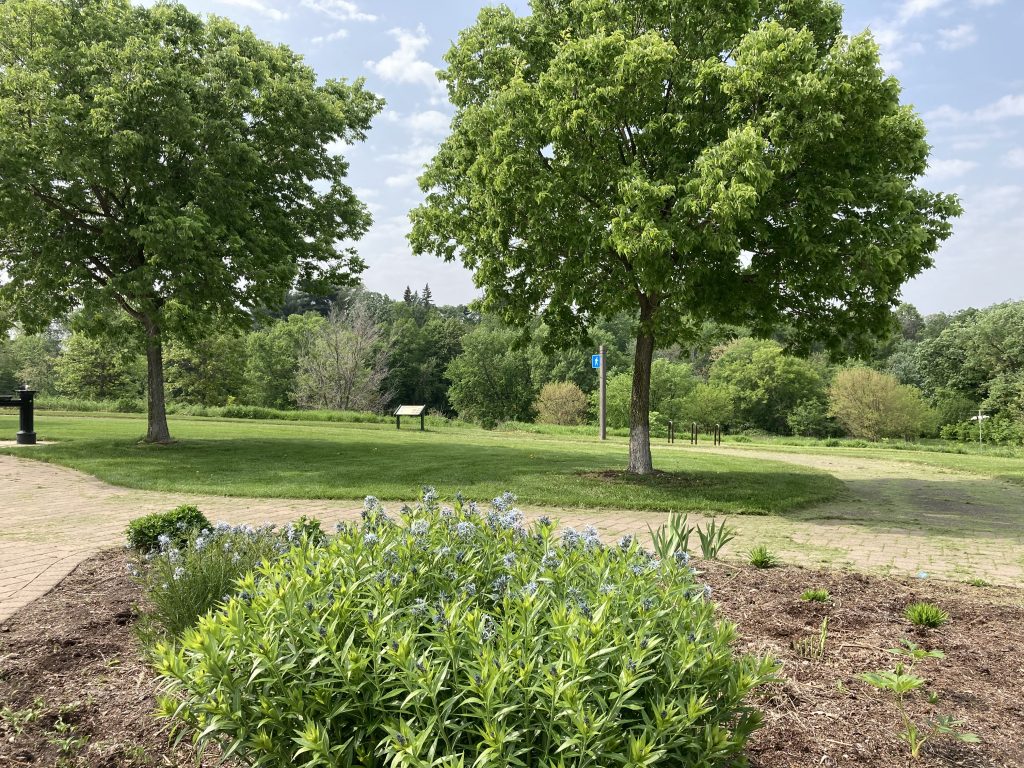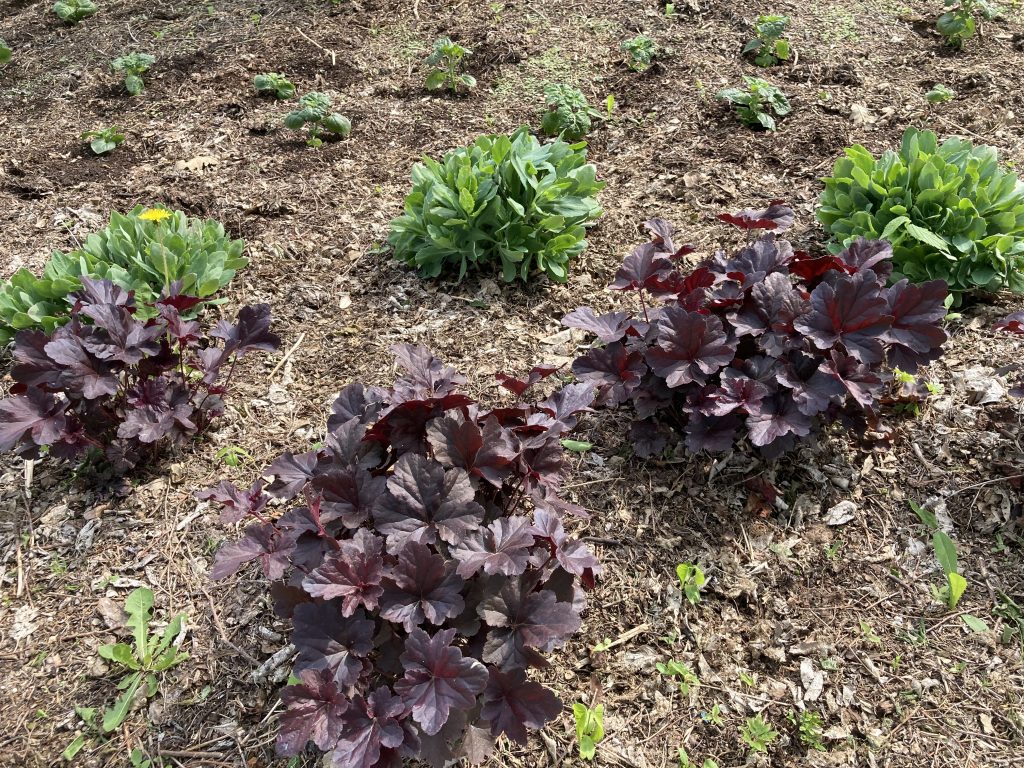run: 5K
2 trails
72 degrees
dew point: 68
Cooler this morning than yesterday, but that dew point. Ugh! It felt good to run again after taking a short break. My last run was this past Saturday. I started at 7:30. I Listened to the gorge for 2 miles of the run, the put in headphones and started with Swift’s 1989, ended with The Wiz.
Another white-sky morning. I suppose the lack of sun made it feel a little coole, but it also made it feel gloomier.
Quiet. The river road was crowded with cars, their wheels whispering.
I ran on the dirt path between edmund and the river road. Heard some runners chatting across the road. After a few minutes, their voices drifted away behind me.
I don’t remember hearing any birds or acorns dropping, but I do remember the trickling of water through the sewer pipe near 42nd and the buzzy roar of a parks’ riding lawn mower above me as I ran below on the Winchell Trail.
I briefly glanced down at the river and thought: steamy, stagnant.
Haze in the air, hovering. Thoughts about my dying father-in-law hovering too. We went to visit him yesterday afternoon and he was asleep in a hospital bed in his bedroom. Quiet, dark, the only sounds the steady pulse of his oxygen and CPAP machines and Scott gently trying to wake him — Dad Dad Dad Dad. He had slept all day. This is it; we’ve entered the final stage. Another tender September is nearing.
Earlier this morning as I finished my coffee, I refreshed my memory on a poem I memorized a few years ago: Push the button, hear the sound by Helen Mort:
Listen to the lorikeet’s whistling song.
Can you hear the call of the mynah bird?
Can you hear the flamingos in the water?
Can you hear your small heart next to mine
and the house breathing as it holds us?
Can you hear the chainsaw start, the bones
our neighbor’s eucalyptus breaking?
It’s summer, high, emptied. Listen to the ground,
giddy with thirst. Listen to the dog shit
on the lawns, the murderous waterboatmen
skimming the green pond. Can you hear
the roses rioting on the trellis? Can you
make a noise like a cheeky monkey? There are
sounds your book lacks names for.
I recited it in my head a few times as I ran, recited it to my phone after I was done. I love how Mort moves back and forth from the command, Listen, to the question, Can you hear? In 2020, I made a list of her “listens” and “can you hears?” and then came up with some of my own: August 9, 2020
And finally, the Turkeys. I almost forget them — how I could forget the turkeys? Running the narrow dirt path between Minnehaha Academy and Becketwood (the gauntlet), I had to veer wide to avoid 3 turkeys chilling out in the grass. As I approached, the closest one trotted away, its wings flapping.
seen and read
Day two of the view of my window — not the view from, but the view of. Decided to go outside and inspect the spider web from the yard, looking through the window from the outside in. The web is still there and this spider looks even bigger up close. Wow, this spider! So big, especially the abdomen. Could she be pregnant? If I keep watching every day, will I be able to see her egg sac explode? How does that work? (Here’s a picture Scott took of the spider and posted on Instagram.)
Late morning, sitting on the HOT (feels like 99 degrees) deck, reading A Good House for Children, an excellent gothic novel featuring two of my favorites: a creepy house and the Dorset coast! One of the moms, Orla, has just taken a few polaroid pictures of her young, mute son:
Orla stood along by the window and watched the Polaroids develop in their enigmatic way, the images appearing as if through a clearing mist. Digital may have been sharper, but she generally preferred the texture of Polaroid, how it make everything look both blurred and hyper-real.
About this description, I wrote in my plague notebook (almost done with vol. 16!): digital photos, sharp images — illusion, saccadic masking, no movement, frozen.
Polaroids, the feel of things, a vague sense of movement everywhere, the illusion of vision made visible.
for my fall class
I’m teaching another addition of my “Finding Wonder in the World and the Words While Outside and in Motion” this fall and I might use this poem and Shira Erlichman’s introduction of it for thinking about the value of, and the problems with, naming:
I’ve recently fallen in love. She is fifty-five feet tall and her body is a hive of leaves where little birds zip and hide. She’s a tree. Whenever I round the particular corner toward her emerald and chirping body, I can’t help but give Esperanza a little wave. I didn’t realize I’d named her until, one day while walking our dog, I mentioned to Angel, “Oh look, Esperanza!” Her head up in the sky, she is way too cool to notice me. I admit, when passing her staggering height and chattering trunk, her ivy coat permeating that endless confidence, I get giddy. Like I’ve spotted a celebrity.
Then there’s Bernadette, another celebrity of my block. The little Dachshund-Terrier mix belongs to an older gentleman who dons coke-bottle glasses. When I see her golden-brown body wiggling down the block I actually shout, like paparazzi, “Bernadette! Bernadette––over here!” Her kind owner is used to this by now. Bernadette throws me the look of a seasoned starlet on the red carpet, then flops onto the ground and offers up her belly.
There are more neighborhood stars that catch me swooning. On one Wednesday night per month, my closed windows can’t keep out the raucous karaoke flowing from a nearby bar. At the first hint of a wild note, my heart’s flashbulb pings. “Zo-om-bie, Zo-om-bie,” spills into my living room, poorly, enthusiastically. An auditorium of cheers and laughs trails behind. “You guys,” I mutter to the disembodied voices of strangers entering my living room, “You’re crushing it.” Someone with an extra heap of chutzpah careens screechingly through Lady Gaga’s ‘Bad Romance’ and my heart flutters.
What makes someone famous? The dictionary says it’s the “state of being known or talked about by many people.” But Esperanza, Bernadette, and a boisterous Wednesday night karaoke choir all feel like celebrity sightings. Did I mention the daffodils? When they all of a sudden poked their heads out this spring I could hear my neighbors gossiping, “Did you see them? Did you see?” It’s not fame that made them famous. Today’s poet resituates our cultural obsession with stardom and flips on its head who gets to be fanatically revered.
Episode 947 of The Slowdown Show
Famous / Naomi Shihab Nye
The river is famous to the fish.
The loud voice is famous to silence,
which knew it would inherit the earth
before anybody said so.
The cat sleeping on the fence is famous to the birds
watching him from the birdhouse.
The tear is famous, briefly, to the cheek.
The idea you carry close to your bosom
is famous to your bosom.
The boot is famous to the earth,
more famous than the dress shoe,
which is famous only to floors.
The bent photograph is famous to the one who carries it
and not at all famous to the one who is pictured.
I want to be famous to shuffling men
who smile while crossing streets,
sticky children in grocery lines,
famous as the one who smiled back.
I want to be famous in the way a pulley is famous,
or a buttonhole, not because it did anything spectacular,
but because it never forgot what it could do.
Maybe think about this poem in relation to my poem, “The Regulars,” and Emily Dickinson’s “Nobody”?
swim: 4 loops
lake nokomis open swim
86 degrees
The last open swim of the season. Not enough lifeguards for a full course, so it was another there and back with 2 orange buoys and one green. Swimming the course, I realized 3 things: I can see the green buoys much better than the orange ones; I am much less likely to encounter off-course swimmers almost swimming into me when the course is a wide loop, than when it’s a there and back (several near misses last night); and because of the shortened course, I’ve missed out experiencing my favorite stretch one more time. It’s the stretch between the final green buoy at one end of the big beach and the first orange buoy past the other end. There’s something strange and dreamy about this wide stretch: it seems longer than other stretches; it’s the one stretch where I am usually able to see the orange buoy looming ahead of me; often, when the water’s choppy, the waves are behind me here, pushing me along, almost as if I were on a people mover; and it’s comes at the end of the loop, so I’m in a state of relief (another loop done!) and recovery (preparing for the next loop or slowing down for the shore).
I would love to craft a poem that might capture a little of the strange dreaminess of these moments — probably around 10 minutes?: vast, wide, open — not endless because I can see the orange buoy end, serene. This moment comes right after the intensity of rounding the final green buoy: the traffic jam of swimmers, the way the current pushes me forward, the changing of views from shore to water, water, everywhere. Yes! Maybe I’ll try.

